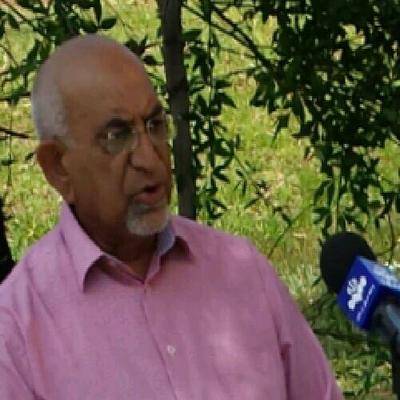Is it a case of much ado about nothing or does it pose a significant challenge to undermine key components of Israel’s multi-layered myths? From the heated backlash unleashed following an essay authored by Peter Beinart, it is clear that defenders of Zionism’s settler-colonial project view him as a “turncoat” and his views as an existential threat to the survival of the Zionist state of Israel.
Who is Beinart, and why has there been such fury at his revised understanding of the path chosen by the Netanyahu regime to fulfil Zionist goals in “Eretz Israel”?
Peter Beinart is described by renowned Israeli journalist Gideon Levy as one of American Jewry’s most prominent liberal intellectuals. An observant Jew who was raised in a Zionist home, he was 28 when he became the editor of The New Republic, and went on to become a senior columnist at Haaretz.
Levy himself is an ardent opponent of apartheid Israel. He described Beinart’s essay as “impressive”, which is no small compliment, given that Beinart wrote that, “It’s time to imagine a Jewish home that is not a Jewish state.” For this he is being lambasted as an “anti-Semite” and a betrayer of Zionist ideals. As Levy points out, his Haaretz colleague has said goodbye to the two-state solution and, in effect, divorced himself from Zionism.
READ: The fact that Peter Beinart ‘no longer believes in a Jewish State’ tells us a lot
As an illustration of why his new vision has attracted media attention, the New York Times headline said it all: “I no longer believe in a Jewish state”. The storm resulting from Beinart’s essay has engulfed Zionist ideologues in Israel, America and the Jewish diaspora. It reminds us in South Africa of the angry reaction to icon of the anti-Apartheid struggle Ronnie Kasrils when he distanced himself from Israel.
More than two decades ago during the notorious rule of the late Ariel Sharon, Kasrils initiated and led a movement of a significant number of Jews who were disgruntled by Israel’s persecution of Palestinians. They mobilised under the banner “Not in my name”. Not only was Kasrils ostracised by Israel’s lobbyists who parade themselves as Zionist gatekeepers of Judaism, but he was also “disowned” and reviled as a “self-hating Jew”.
The high-profile public position in defence of Palestinian rights by Kasrils, who at the time was a senior member of Nelson Mandela’s cabinet and, moreover, an icon of the ANC’s liberation movement, shook the core of the Jewish establishment. Nevertheless, Kasrils withstood the vengeful attacks and grew in strength as his conviction to remain firmly opposed to Israel’s unjust apartheid rule led him to become a leading advocate for Palestinian rights.
The question now is whether Beinart will withstand a similar onslaught, survive and then lead Zionist liberals to abandon their support of a flawed ideal based on settler colonialism. Fortunately, as Levy has observed, Beinart is not a lone voice in the United States: “American Jews are beginning, if belatedly, to take a clear-eyed look at Israel, its darling.”
‘Optimism of the Will’: Palestinian Freedom is Possible Now
Although the administration of US President Donald Trump is unashamedly in Netanyahu’s racist camp as representatives of the “elephant in the room of international relations” known as white supremacism, his flouting of global human rights laws and conventions makes him a liability for Zionism.
The cracks created by Beinart are likely to widen. Standing against injustice is a welcome paradigm shift, as has been demonstrated ably by the groundswell of rage against racism and targeted discrimination embodied by the Black Lives Matter movement.
Just as Ronnie Kasrils paved the way for Jewish activists in South Africa and Europe to articulate bravely Palestinian aspirations for freedom and dignity, I share Levy’s hope that Beinart’s op-ed will motivate more and more intellectuals and others to look honestly and bravely at reality, as he has done. And that they too will say what is still considered by many to be a heresy and a betrayal of Israel by its supporters in the United States: “It’s time to imagine a Jewish home that is not a Jewish state.”
The views expressed in this article belong to the author and do not necessarily reflect the editorial policy of Middle East Monitor.

![Peter Beinart [Flickr]](https://i0.wp.com/www.middleeastmonitor.com/wp-content/uploads/2020/07/3252799499_6dc914cdfa_k-e1594893987214.jpg?fit=920%2C613&ssl=1)







